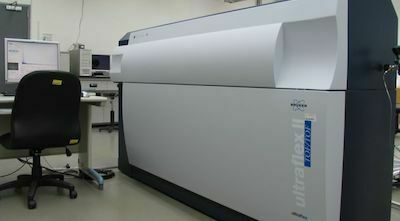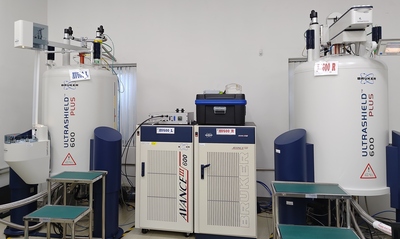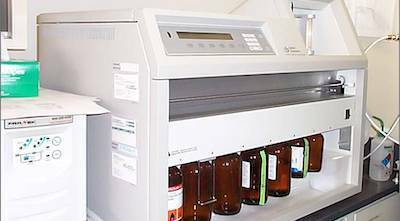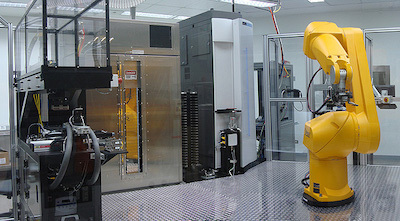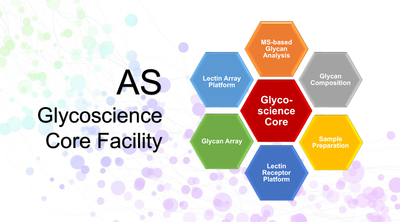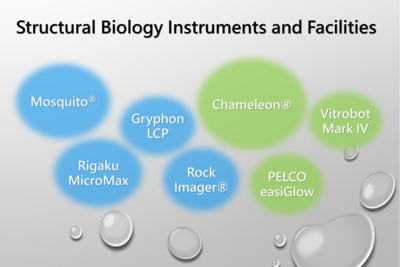Core Facilites
-
GRC Mass Spectrometry Facility
Facility PI: Dr. Lin, Jung-Lee
Lab tel: +886-2-2789-8754LTQ-FT: LC-MS/MS protein identification service.
LTQ XL-ETD: LC-MS/MS protein identification service.
UltraFlex II: Open for MS sample submission (a) and trained users (b).
Polaris Q: For trained users only.
CyTOF 2: CyTOF service with antibody and lanthanide polymer conjugation. -
GRC NMR Core Facility
Facility PI: Dr. Chang, Chi-Fon
Lab tel: +886-2-2787-1206NMR Facility is located on the first floor of Genomics Research Center. The facility maintains two 600MHz Bruker NMR spectrometers. The AV600_R spectrometer is a two-channel system equipped with a 5mm DCI Dual cryoprobe (high sensitivity 1H/13C observation includes cooled preamplifiers for 1H/13C/2H with Z-gradient). -
Peptide Synthesis Facility
Facility PI: Dr. Hui-Ming Yu
Lab tel: +886-2-2789-8779Currently,“peptide synthesis” includes a large range of techniques and procedures that enable the preparation of materials ranging from small peptides to large proteins.
-
Ultra High Throughput Drug Screening System
Facility PI: Dr. Cheng, Ting-Jen
Lab tel: +886-2-2789-8809The Ultra High Throughput Drug Screening Facility(website link) in GRC is the first of its kind in Asia. The system is built to: establish a versatile drug compound library, develop assays for high throughput screening, create a database to store and provide drug candidate related information. -
Structural Biology Instrumentation Facility
Facility PI: Dr. Ma, Che Alex
Lab tel: +886-2-2789-8072X-ray crystallography and cryo-electron microscopy (Cryo-EM) are crucial techniques for determining protein structures. X-ray crystallography resolves the three-dimensional structure of proteins by collecting diffraction data from crystals, while cryo-electron microscopy obtains high-resolution structural information through the collection and reconstruction of a large number of two-dimensional images. High-quality sample preparation is essential for acquiring accurate structural data. Therefore, we offer a variety of advanced instruments, including efficient protein crystallization screening, automated crystal observation, crystal diffraction analysis, and automated cryo-EM sample preparation equipment, ensuring that sample quality reaches its optimal state. These technologies not only provide strong support for structural biology research, promoting basic scientific exploration, but also play an important role in biomedical innovation, drug design, and biotechnology applications, facilitating the integration of scientific development and practical applications.



